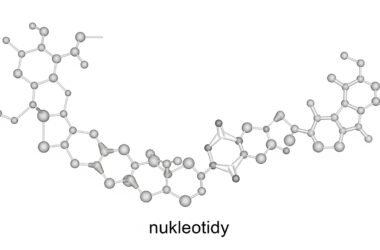As the world faces complex and interconnected challenges, the need for strong global leaders continues to rise. An International Administration masters degree online offers a rigorous and flexible path for aspiring professionals to gain the expertise needed to respond to these dynamic global issues. Through interdisciplinary coursework, practical learning, and strong networking opportunities, the program prepares individuals to influence international policy, diplomacy, and global development.
This article explains how the MAIA program shapes adaptable and effective global decision-makers. From interdisciplinary training to the creation of a strong international network, you will see how this degree helps graduates make meaningful contributions in diplomacy, NGOs, and global business.
The skills gained in a MAIA program go far beyond academics. They form the foundation for careers in public policy, economics, development, and leadership. As organizations seek experts who understand both local contexts and global systems, MAIA graduates are becoming key contributors to a more connected world. Whether you aim to work in humanitarian aid, cross-border negotiations, or strategic consulting for multinational companies, this pathway opens doors to roles that require cultural intelligence, critical thinking, and adaptability.
Interdisciplinary Training for Complex Global Challenges
The MAIA curriculum connects political science, economics, public management, and international law. This blend is essential because today’s leaders must analyze problems from multiple angles and design solutions that consider cultural, political, and economic realities. For example, many MAIA programs—such as the one offered by the Middlebury Institute—include courses in global governance, sustainable development, security studies, and human rights. As a result, students develop strong analytical and leadership skills that prepare them to handle issues like climate migration, economic inequality, and geopolitical conflict.

Diverse Career Pathways in International Affairs
An MAIA degree opens a wide range of career options. Graduates often work in international organizations such as the United Nations, the World Bank, and the International Monetary Fund. Many also join NGOs, government agencies, and global consulting firms. Because the curriculum blends policy and administration, students learn to manage strategic and operational tasks. This combination enables them to lead projects in areas like foreign aid, sustainability, and global negotiations. Moreover, job opportunities in international affairs continue to expand as employers value professionals with strong global awareness.
Emphasis on Practical Experience and Case Studies
Beyond classroom learning, standout MAIA programs emphasize the importance of experiential education. Students participate in international simulations, internships with global organizations, and detailed case studies that mirror real crises and negotiations.This practical approach prepares them for complex decision-making in high-pressure situations. Through teamwork and collaboration with peers from different backgrounds, students learn resilience, flexibility, and strategic thinking. Many universities partner with global organizations, giving students the chance to work directly on issues such as humanitarian emergencies and development programs.
Building a Global Professional Network
Another major benefit of an MAIA program is the opportunity to build a strong professional network. Students become part of a diverse community that includes classmates, alumni, and faculty with global experience. These connections create long-term career opportunities and collaborations. Networking events, mentorship programs, and international conferences offer additional chances to grow professionally. Students also learn from faculty members who have served as diplomats, consultants, and policy experts, gaining valuable practical insights and career guidance.
Developing Adaptability in a Rapidly Changing World
The field of international affairs changes quickly due to political shifts, economic trends, technology, and global crises. MAIA programs help students adapt to these changes by exposing them to diverse perspectives, current events, and challenging discussions. This environment builds leaders who think strategically, respond effectively under pressure, and lead with empathy. Through real-time learning and cross-sector engagement, students gain the adaptability needed to succeed in today’s global environment.
Conclusion
Choosing a Master’s in International Administration is a smart step for anyone who wants to shape global systems and drive meaningful change. The program combines political science, economics, diplomacy, and leadership, giving students a deep understanding of how international institutions operate. With case studies, internships, and collaborative projects, students gain practical experience that strengthens their problem-solving and strategic thinking. The program also offers valuable networking opportunities, connecting students with professionals and global leaders. As the world faces challenges like climate change, migration, global health crises, and economic instability, MAIA graduates provide the adaptability and cultural awareness needed to create impactful solutions. With these skills, they play a vital role in building a more resilient and interconnected future.
Key Takeaways
MAIA programs offer interdisciplinary training for addressing complex global challenges.
Graduates qualify for diverse careers in international organizations, NGOs, and government agencies.
Hands-on experience and case studies strengthen real-world decision-making skills.
Strong global networks help graduates grow professionally and build long-term career opportunities.








